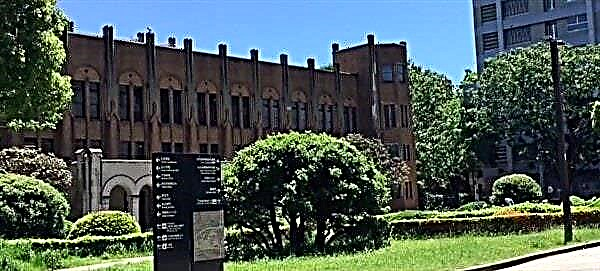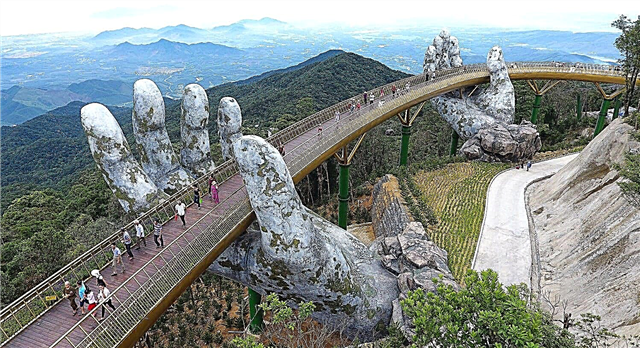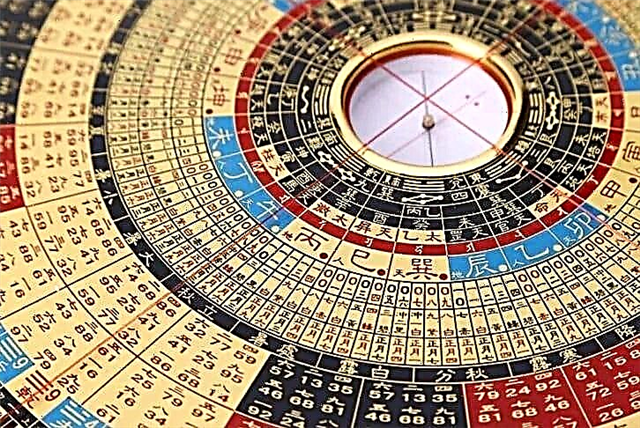By its geographic location, China is in one time zone, apart from two regions. Officially, throughout the country, they are guided by the uniform Beijing time - UTC + 8, which differs from Moscow by 5 hours.
Time recognition options in this country changed regularly. In the past century, new laws regarding Chinese temporary designations have been introduced almost every year. The specifics of the calculus are presented below.
Story
To understand how long it is in China and its cities now, it is recommended to refer to the history of its calculation in the state.

From antiquity until the beginning of the 20th century, there was no single time here. In every corner of the country, clocks were counted by different methods. When calculating, citizens relied on astronomical observations. In the 19th century, during the period of regular conferences concerning the establishment of Greenwich time, the Chinese authorities were engaged in their own problems - socio-economic relations within the country and abroad. Every year the state plunged into a financial crisis, and questions with the setting of time remained open.
In the 20s of the last century, the first reform was carried out, which affected time reckoning in China. The country's authorities relied on European standards, as a result of which the country was divided into 5 time zones:
- UTC + 5.30 - time was used in the west of Xinjiang and Tibet;
- UTC + 6 - in the eastern part of the above places;
- UTC + 7 - on the territory of the central cities of China;
- UTC + 8 - in the area of coastal zones;
- UTC + 8.30 - in the north-east of the state.
Some time after the establishment of time zones, a civil war broke out in the country. After its completion, it was decided to switch to a single time dimension and cancel the division into time zones. A little later it turned out that this method of calculating is not the most convenient. For example, in the eastern part of China it was getting dark after lunch, and in the western region the sun came to its zenith in the evening.

Important! To facilitate measurements in the Celestial Empire, regional methods of time reckoning were invented. Time zones in China, as such, are not legally used.
Deviation from Greenwich Mean Time
Greenwich Mean Time is the average solar meridian that passes through the Royal Observatory of Greenwich, located within London. Until the 70s of the last century, Greenwich time was the starting point for time indicators in other world time zones. Today it is used as Coordinated Universal Time (UTC). In China, the time deviation in relation to Greenwich is 8 hours. To understand what time it is in Beijing, rely on the time zone UTC + 8.
China: time zone
You May Also Like
Geographically, the country is located in 5 time zones. But for convenient calculation, the Chinese authorities canceled the division into time zones and established a single time - UTC + 8. The exceptions are the western outskirts, where the unofficial time frame is UTC + 6. In another way, they are called the time of Urumqi.
The government does not consider it necessary to divide the state into time zones. It explains this by the insufficient length of the country (for example, in comparison with Russia), and also by the fact that the most populous city of Beijing is located in the same time zone.
Earlier in the country there was a division into 5 main zones, which was introduced by the authorities in 1928.
For your information! After 20 years, this division was canceled. The Chinese have decided to use a uniform time base with regional adjustments.

In 2005, there was a proposal to divide the state into 2 main zones. However, the authorities did not even allow such an initiative to be heard.
Time zones in China
There are 2 time zones on the territory. One of them is official - UTC + 8, which is adhered to by residents of large central cities. And the unofficial one is UTC + 6, which is used in the western part of the country. Xinjiang Uygur Autonomous Prefecture is located at the extreme western point of China. Because of this, there is a 2-hour difference between local and eastern time (Beijing, Guangzhou time). For the convenience of local residents, it is allowed to use the unofficial UTC + 6 time clock. They call it the time of Uruchmi.
The time calculation introduced after the civil war turned out to be inconvenient for the western zones of China. This was due to the large discrepancy with the central solar time. Local residents of these regions experienced their own inconveniences. For example, in Kashgar it was getting dark after 3 pm. This state of affairs led to the emergence and aggravation of social conflicts due to the fact that it became uncomfortable for them to fully go to work, do business, household and personal affairs. Therefore, it was decided to introduce regional time calculations in remote corners of the state.
Today, the Chinese (Han) are guided in everyday life by Beijing time. Uighurs living in the west of the country - at the time of Uruchmi. At the same time, working and school days for all citizens begin the same, if we rely on the solar time calculation. Although for some peoples the clock shows 8 am during this period, while for others - 10 days.
Important! Due to the fact that Urumqi time is 2 hours behind Beijing time, there are some differences in the working hours of government organizations in the western regions.

Western working day begins for 2 hours later than for the rest of the Chinese living in the territories of the eastern and coastal cities. At the same time, in public transport (on trains, on buses) during the journey, you can notice that the schedule is indicated for 2 time zones - Beijing and Urumqi.
When flying to the UTC + 8 time zone, Westerners have to navigate to a different time. Similar differences have left an imprint on the everyday life and life of the Chinese. For example, in Beijing after 9 pm it is quite difficult to find a restaurant for dinner, because the locals are used to eating no later than 7 pm. In western cities, local residents go to bed around midnight (if you focus on a single time), so at 9 o'clock in the evening it is quite possible to find such a place with them and slowly dine.
You May Also Like
China time converter
To find out what time it is in China, you need to familiarize yourself with the time difference. The difference between the central, eastern, coastal and western zones of the country is 2 hours. At the same time, theoretically, for all Chinese, the working and school day is the same (if we focus on a single solar time). But in fact, different numbers are shown on the watches of residents of the West and the East during this period.
If you focus on Russian cities, then the exact time difference is from 1 to 6 hours:
- Moscow - 5 hours;
- Chelyabinsk - 3 hours;
- Khabarovsk - 2 hours;
- Krasnoyarsk - 1 hour;
- Simferopol — 5 hours;
- Yekaterinburg - 3 hours;
- Kaliningrad - 6 hours;
- Rostov-on-Don - 5 hours;
- Tyumen - 3 hours;
- Krasnodar - 5 hours;
- Orenburg - 3 hours.
The difference with foreign cities is as follows:
- Paris - 7 hours;
- London - 8 hours;
- Dubai - 4 hours;
- Milan - 7 hours;
- Mumbai - 2:30 minutes
To understand what date, date and time are now in Chinese cities, you can use special online portals.

Important! The time difference with American and Australian countries is from 5 to 16 hours.
Time in cities in China
As mentioned above, China uses a single time frame. The only exceptions are the western regions of the state.Calculation according to the time zone UTC + 8 takes place in the following cities:
- Alihe;
- Bozhou;
- Golmud;
- Guangzhou;
- Fuzhou;
- Humen;
- Shanghai;
- Hainan
- Shenzhen;
- Tsuigang;
- Qinzhou;
- Qufu;
- Lijiang.
Calculus according to the time zone UTC + 6 is used in the following settlements:
- Turpan;
- Uruchmi;
- Hami;
- Golmud;
- Gyangdze.
At the time, Uruchmi are also guided in the cities of Dechen, Korla, Kucha, Changji. The current time in Chinese cities can be found online.
Daylight Saving Time in China
On the territory of China, today they do not change the clock to summer or winter time. The last transfer case was recorded in 1986when the government asked all residents of the country to rearrange the clock by 1 hour. This was necessary to increase daylight hours. However, a little later, in 1991 year, the authorities acknowledged that such transitions only caused confusion and therefore the transition to daylight saving time was canceled.
Features of the Chinese calendar
Feng Shui people know that some months don't start with a new moon. This is due to the peculiarities of the local calendar, which to this day is shrouded in secrets and legends. One of them says that it was created by the Emperor Huang Di about 4 thousand years ago, who focused exclusively on the sun, and not on the moon, as is customary now.
Since ancient times, the Chinese have observed the stars and planets, determined their influence on life events, and most importantly, on agriculture, which was the main activity in the old days. The life of the state largely depended on how accurately they did it.
Against this background, they managed to create an agricultural calendar that not only took into account time, but also described its movement using 5 basic elements - natural elements. It is based on 60-year cycles, presented as a combination of 10 heavenly stems:
- yang tree;
- yin tree;
- yang fire;
- yin fire;
- Yang land;
- yin land;
- yang metal;
- yin metal;
- yang water;
- yin water.
The calendar also includes 12 earthly branches, represented by the following animals:
- rat;
- bull;
- Tiger;
- rabbit;
- the Dragon;
- snake;
- horse;
- goat;
- monkey;
- rooster;
- dog;
- pig.
It was from here that the designations of the years appeared, which spread throughout the world. For example, 2018 is the year of the earthen dog, 2017 is the year of the fiery rooster.
The lunar months for the Chinese are the time from one new moon to the next (by the term "new moon" the inhabitants of the country mean the moment of contact between the moon and the sun). They do not have specific names here: they are simply numbered in the order of the sequence. Therefore, every 3 years, the 13th lunar month is formed.
The Chinese calendar is presented in the form of a complex system, in which, in addition to the lunar months, there are also solar ones. The solar month is called the period of time during which the star passes 30 degrees of the tropical zodiac.
Important! All solar months are divided into 2 parts: therefore, in China, there are 12 seasons and 24 intermediate periods.

The Chinese celebrate the New Year twice - according to the solar and lunar calendars. Local residents pay special attention to natural elements and historical calculations, according to which the Sunny New Year falls on February 3-5. The date of its holding changes annually. For example, in 2013, the calculations showed for February 10, in 2016 - February 19. In 2021, the holiday will be on January 25th.
Today, China has switched to the Gregorian calendar, like all other states in the world. However, lunar calculations are still important for many people in the country.
It is noteworthy that the Chinese call their New Year a holiday of spring. It is one of the most significant for the state. Therefore, on the eve of it, all families and kindred clans are reunited in order to spend the past year and congratulate each other.
New Year's holidays in China last up to 15 days, while in schools and universities, children and young people are suspended from classes for 1 month.
Locals start preparing for the celebrations a week in advance. Before the onset of the New Year, the Chinese must do a general cleaning, get rid of unnecessary things, buy all the necessary attributes and products for a family feast.
Not a single New Year is complete in China without colorful fireworks and fireworks, so almost every family gets pyrotechnics on the eve of the holidays, which they use in the first days of the new year.
China is a country where a single temporary system is legally used, despite its impressive length. Unofficially, on the territory of the state, residents of the western regions are guided by the time of Urumqi because of convenience.
Today in China there is no transition to winter and summer time: this rule was canceled in the 90s of the last century, which greatly facilitated the life of local citizens.











